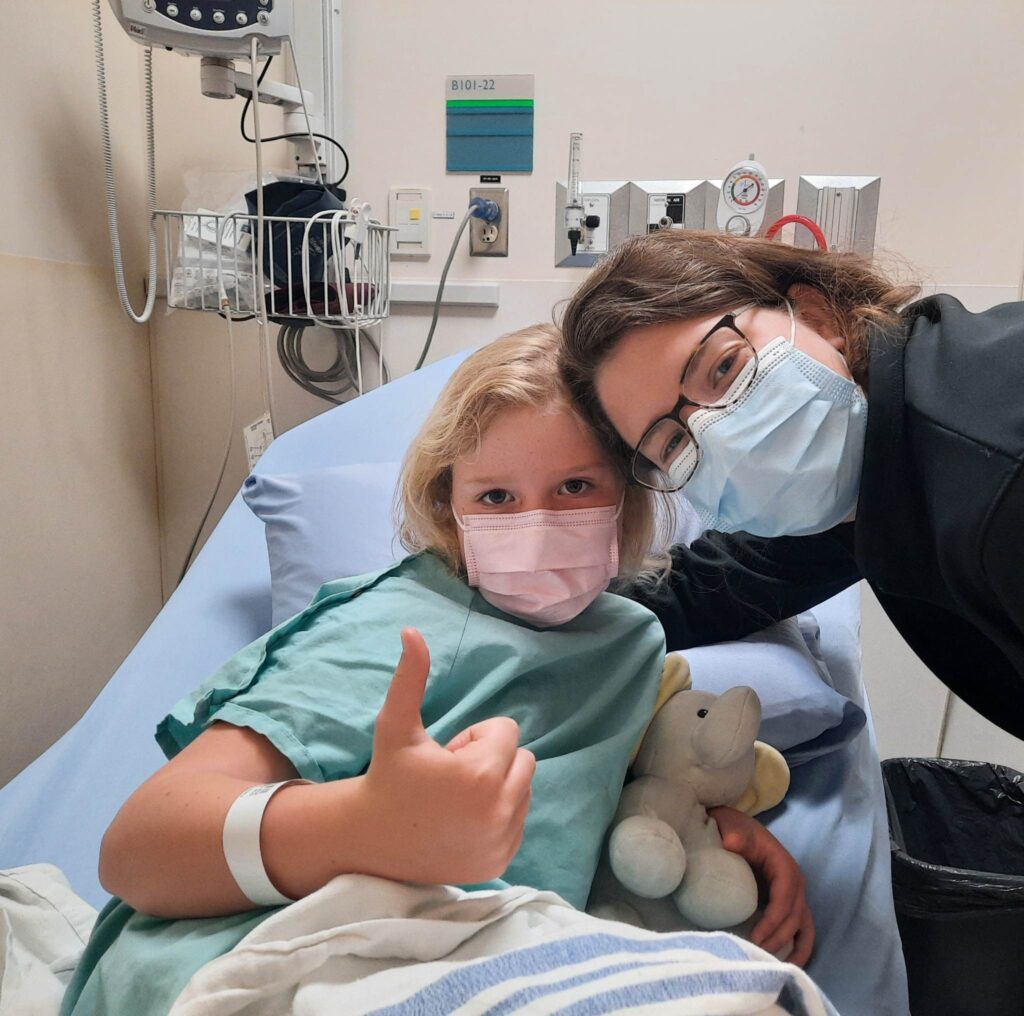
Sitka Polk and Nora Francis: Nora’s First Rainbow and the Power of Gene Therapy
Imagine being told your newborn might never see the world. This was the harsh reality for Sitka Polk and her husband David. Just five weeks after the joyous arrival of their daughter Nora, her eyes began to flicker uncontrollably. The emergency doctors at IWK Health Centre in Halifax were baffled. “We’ve never seen this before,” they confessed.
After several tests and consultations, Nora ended up in the hospital’s neurology clinic, where the neurologist explained that Nora had an eye issue. “Prepare yourself for lifelong blindness,” he said.
Fortunately, lifelong blindness was not what awaited young Nora. What followed instead was a journey of fear, hope, and eventual triumph, as a community rallied to restore Nora’s sight.
“Nora was diagnosed with Leber congenital amaurosis (LCA) at age two, and then genetic testing confirmed RPE65 gene mutation,” says Sitka. Nora’s family and school adapted brilliantly to her needs. “We always had bright lights on at home,” says Sitka. “We had a big lamp on our kitchen table so Nora could eat her food and draw. She had a desk lamp at school and they installed bright lighting in the bathrooms and hallways.” Nora also had a magnifier and was being trained in using a white cane.
The accommodations could only do so much, however. As the sun set each day, Nora’s world dimmed significantly, forcing her indoors while her peers played outside. Exploring new places was a challenge. While she loved drawing, Nora always chose a dark sharpie because of its strong contrast with the white paper. And the looming fear of inevitable blindness cast a shadow over her vibrant young life.
But there was hope. “I knew that there was a treatment in the U.S. for LCA with this gene mutation,” says Sitka. “We started advocating for it to come to Canada.”
Doug Earle, the former CEO of Fighting Blindness Canada (FBC), reached out to Sitka and got her involved in FBC’s advocacy work to get the new treatment, Luxturna, approved in Canada. “Having a child with a rare disease can be lonely,” says Sitka. “Working with FBC made us feel supported, part of a community fighting for a common cause.”
Thanks to groundbreaking research and advocacy work by FBC and others, Luxturna — a one-time gene therapy for individuals with retinitis pigmentosa or LCA caused by mutations in the RPE65 gene that can slow the progression of vision loss and may also restore some vision — was approved by Health Canada in 2020. In the spring of 2023, provinces (including Nova Scotia) agreed to publicly fund the treatment. Nora received her treatment over two sessions that spring. The results were beyond what anyone had dared hope.
“It’s mind-blowing how good her vision is now,” says Sitka. Nora, now eight, no longer needs the intense indoor lighting that once scaffolded her life. She plays outside with her friends in the twilight, reads fine print, and sees the world in vivid contrast.
And Nora’s improved vision has given her parents the magical, emotional experience of watching her observe the world in a whole new way. “She got to see a rainbow for the first time this spring,” says Sitka. The stars and the moon, once invisible to Nora, now twinkle in her sight.
For Sitka and David, Nora’s successful treatment has lifted a heavy burden of fear and anxiety. “It’s a huge relief,” says Sitka. “A lot of our worry has gone now because she’s doing so amazing.”
Nora’s story is a testament to the power of medical innovation and community advocacy—illuminating the lives of those touched by rare genetic conditions and offering hope where once there was none.
Join the Fight!
Learn how your support is helping to bring a future without blindness into focus! Be the first to learn about the latest breakthroughs in vision research and events in your community by subscribing to our e-newsletter that lands in inboxes the beginning of each month.

